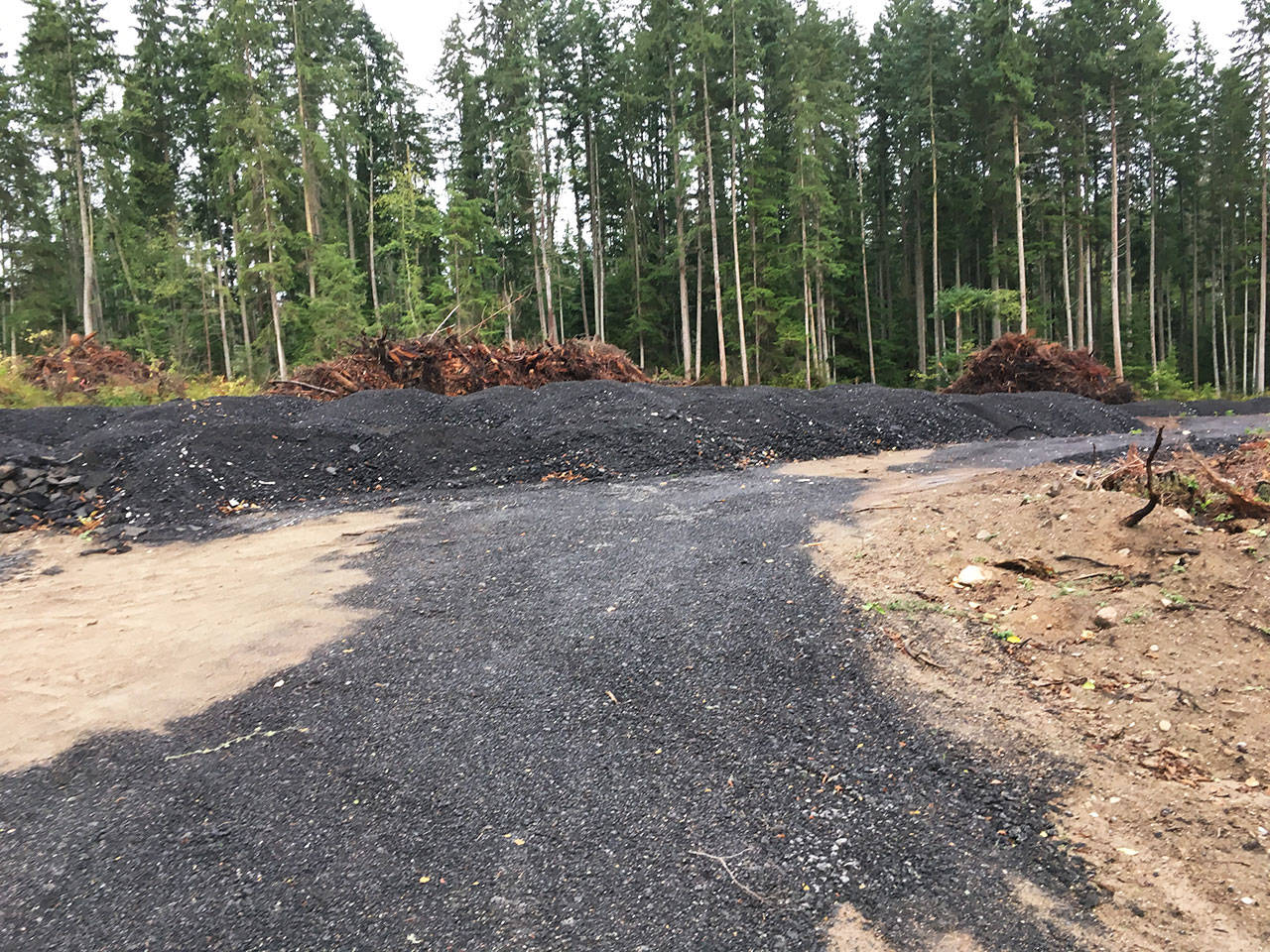In an effort to address multiple truckloads of crushed asphalt piled on a property on South Whidbey’s Midvale Road, a local environmental group has been met with the bureaucratic runaround.
The Whidbey Environmental Action Network, or WEAN, filed a complaint with Island County’s planning department citing an alleged violation of the property owner’s forest practice permit and potential public health risks associated with rain water carrying toxic substances into Midvale and Maxwelton wetlands and streams.
“Gravity happens,” said Marianne Edain of WEAN. “You’ve got this enormous mass of asphalt piled at the top of a hill.”
The landowner, Verlane Gabelein, died in mid-November, which further muddies the waters as to where the responsibility lies in handling the matter. County planning officials responded to WEAN’s complaint and said it was the state Department of Natural Resources that has jurisdiction on that property.
The parcel was logged under a state non-conversion forest practice permit, which forbids development that would prevent continued forest growth for six years. DNR issued the permit to Gabelein in 2016.
“Asphalt has nothing to do with forest practices,” Edain said.
However, DNR’s forester Bud Westcott inspected the lot and did not issue a notice of conversion, according to his supervisor Jay Guthrie, assistant regional manager for forest practices. The county planning department is unable to take action unless this notice is filed, said Bill Poss, public works development coordinator.
The county public health department had also been notified. An email from a public health official said an environmental report tracking system, or ERTS, had been filed with the state Department of Ecology, “so the appropriate departments could get involved.” This email was sent to Poss in late November of 2017.
In response to a public records request, an Ecology official said no physical files or ERTS reports for the site could be found. The Midvale Road property is not listed on Ecology’s online list of confirmed and suspected contaminated sites.
“Every agency is pointing at every other agency,” said Edain.
She said a DNR official told her the agency may grant the property owners who are non-compliant with a forest permit as much as three years to come into compliance. She thinks that is too long to have a potentially harmful substance seeping into the groundwater.
“The sheer size of the area covered makes it all but inevitable that rain will leach through the asphalt and carry toxins downstream into the Midvale and Maxwelton wetlands and streams,” the complaint investigation request states.
Island County Public Health Director Keith Higman said asphalt is used in roads across the country, and he isn’t concerned from a public health perspective. However, Steve Erickson, also of WEAN, said the crushed asphalt meets the county’s definition for solid waste in its own code. The code’s definition includes “construction/demolition debris,” which means any “material resulting from construction, renovation, or demolition of buildings, roads and other man-made structures.”
Erickson and Edain said paved asphalt on roads is sealed and impervious, meaning water runs off of it rather than through it. But rain water can percolate through the piled crushed ashpalt, Erickson said, and pick up what’s considered “low-level toxic waste.” Edain said she wants to continue to work to ensure the situation is handled, but she isn’t sure how yet.
”Getting action — I don’t know what it’s going to take,” she said.”I’m trying to figure out what is an appropriate next step.”
Verlane Gabelein’s daughter, Elise Gabelein, did not wish to comment on the matter.



